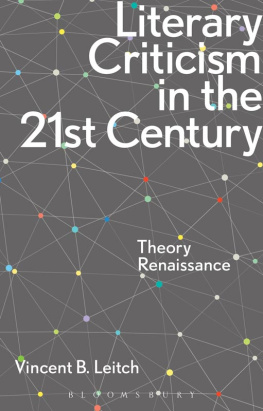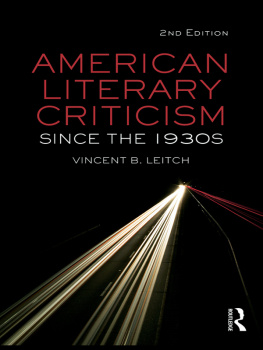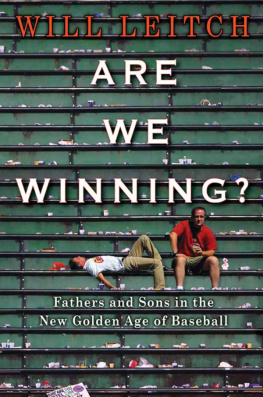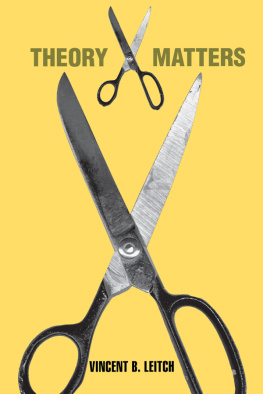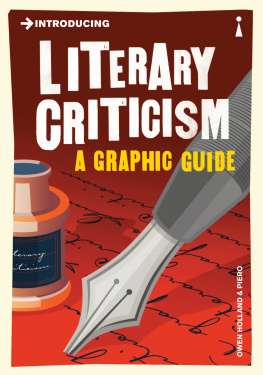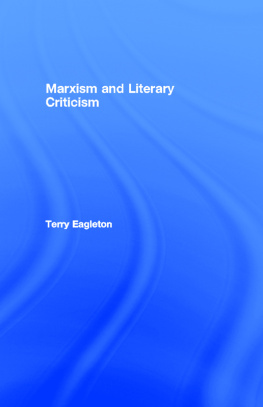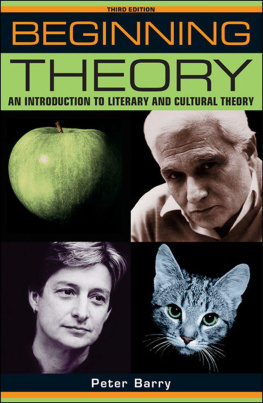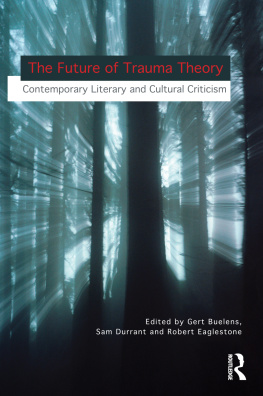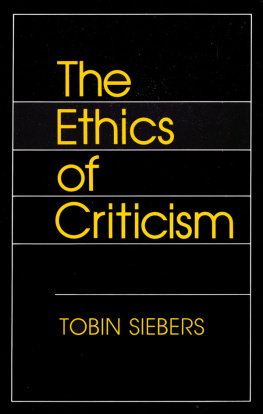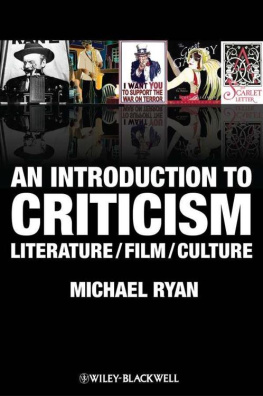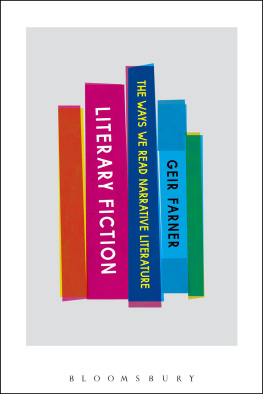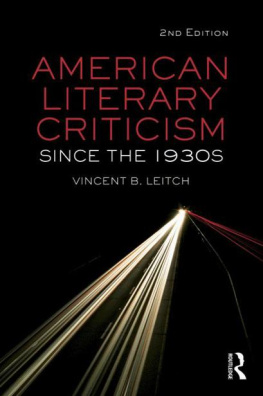Literary
Criticism in the
21st Century
ALSO AVAILABLE FROM BLOOMSBURY
Modern Literary Theory: A Reader, 4th Edition , Patric ia Waugh & Philip Ri ce
Crimes of the Future: Theory and Its Global Reproduction , Je an-Michel Ra bat
Literary Theory: A Guide for the Perplexed , Mary Klages
How to Read Texts: A Student Guide to Critical Approaches and Ski lls, 2nd Edition , Neil McCaw
The Poetry Toolkit: The Essential Guide to Studying Poetry, 2 nd Edition , Rhian Williams
Literary
Criticism in the
21st Century
Theory Renaissance
Vincent B. Leitch

CONTENTS
There are four major claims that I want to state at the outset. First, despite all the talk about posttheory and after theory that has been floating around for several decades, there is a theory renaissance underway. Granted, it is difficult to see at first glance. Second, as my map on the flyleaf suggests, twenty-first-century theory is knowable but unmasterable (). This chart contains 94 subdisciplines and fields circling around 12 major topics (reminiscent of planets and satellites), which can change spheres and fuse into original combinations. Third, the twenty-first-century theory renaissance takes a characteristically postmodern form, namely disorganization or disaggregation of many subdisciplines, fields, and topics. In a world in which there are 6,800 mutual funds, 20,000 wines reviewed annually in Wine Spectator , and innumerable sneakers to choose fromwith guides for dummies everywhere to assist us in these arcane areasproliferation and fragmentation should come as no surprise. Fourth, the 15 or so earlier well-known twentieth-century schools and movements of theory from Marxism, psychoanalysis, and formalism to postcolonial theory, New Historicism, and queer theory are, strictly speaking, a twentieth-century phenomenon. Schools and movements do not pertain to earlier centuries of theory or to the twenty-first century. Nevertheless, they remain important today as sources and resources not only for practical literary criticism but also for teaching theory. By way of simplification, the 106 items constituting my inventory of theory can be regarded as the cultural studies movement in its disaggregated form. The take-away message of my initial set of claims is that with literary and cultural criticism today, theory, for good and ill, is everywhere and nowhere.
I anticipate several questions at this point. Is the recent transformation another victory of theory following its triumph in the 1980s? Why in any case call this complex spread theory? To answer the first question, I would characterize the dissemination and leveling underway as neither a triumph nor a disaster but rather a mixed blessing. Theory now occupies the role of regular practice as opposed to shocking and disruptive vanguard. Gone are the high excitement and energy revolving around theory during the cultural wars of the fin de sicle. Yet a second glance at the map, however initially befuddling, reveals that most of the current practices raise very precisely targeted critical questions of a fundamental sort. Theory, as in the past, continues to prompt and underwrite productive research and publication projects for criticism across an expanded spectrum of topics and fields. But the fractalization of theory has meant that there are very few jobs in the area. These days theory serves as an adjunct, a helpful toolkit, a secondary but indispensible strength for long-established fields and areas of literary and cultural study.
Why continue calling this proliferation theory? In a word, parentage. All the items on the map stem directly from recognizable contemporary schools and movements of theory. In addition, no one has successfully proposed an alternative term. I cant think of one. Cultural studies, a likely contender, doesnt fit; it remains too amorphous, plus it lacks historical foundations and precisions of theory. Considered comparatively, theory is a neutral term whereas cultural studies has inherited a vaguely engag orientation linked to the social sciences. below offers some clarification. Here twenty-first-century theory includes distinctive methods and approaches. One among others is cultural studies.

FIGURE 2
While cultural studies and theory overlap, theory includes items not generally welcomed by cultural studies such as formalism, phenomenology, and narrative poetics, all experiencing revivals today. Although fusions abound, theory today maintains its legacy of autonomy. That said, I have nothing against, and I personally support, ongoing contemporary linkages of theory and cultural studies.
The chapters in this book follow a trajectory from statements of personal belief to return visits to key debates to recent monumentalizations of French theory to futures for theory. previews the major topics, sentiments, and arguments of the book by means of a credo. It blends the professional and the personal, my work in theory and my family life, to illustrate the range of concerns pertinent to contemporary criticism. For example, the chapter dramatizes the increasingly important role during recent decades of financialization and free-market political economy as they shape family, self, and society. Here I argue for, while defining intimate critique, an adjunct to cultural critique, both of which should continue to play a central role in todays literary and cultural criticism. This chapter provides preliminary definitions of theory and postmodernism in their current versions.
provides a critical account of the antitheory phenomenon that started in the 1970s and is still with us. The heterogeneous antitheory front constitutes a neglected part of the history of contemporary criticism and theory filled with contending definitions and alternative missions for theory. In exploring half a dozen exemplary indictments of theory, I develop my own critique of theory as well as clarify my own theoretical ideas and principles. In addition, I show what is at issue in the sacred antitheory oath I lo ve literature.
Many calls to return to close reading and renounce ideology critique have popped up in the new century. They go under various names such as uncritical, reparative, appreciative, surface, and generous reading. argues against such head-in-the-sand calls. Instead it advocates and defines a program of critical reading that blends ideology critique, close reading, cultural critique (attended by intimate critique), and pleasure reading. It refuses the either/or option of close reading versus ideology critique in favor of a both/and choice suited to criticism and education in an age of intensifying class antagonisms, disruptive reconfigurations of the family, and spreading social tensions and wars.
provide inventories of current trends and methods through dialogue. In both cases I advocate while illustrating the merits of blending theory and cultural studies with literary criticism in our still postmodern moment.
Rather than a standard interview, enacts an engaged conversation initiated by a mid-career academic literary critic of American literature and culture. While he does not identify with theory, he is open and curious about it. The chapter offers a panoramic dialogue, on one hand, of insiders talking about teaching and textbooks; scholarly methods and writing styles; cultural studies approaches versus formalist close reading; the corporatization of the university; plus many facets of theory. Beyond academe, on the other hand, we discuss media, politics, and economics in the context of early twenty-first-century cultural conditions and the role of criticism today.
Next page
